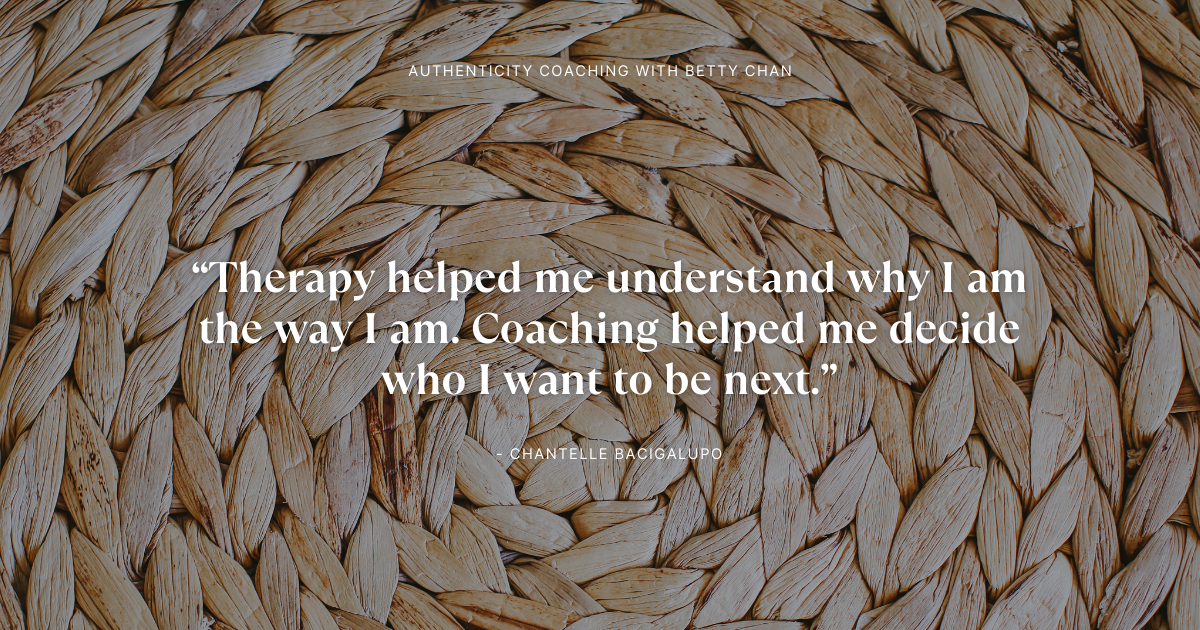When Therapy Has Done Its Job But You Still Feel Stuck
Self-awareness got you here. Now it’s time for something new that moves you forward.
There’s a strange moment that happens after therapy starts to work…
You've done the inner work: faced your past, relived the difficult experiences, and made peace with things that used to run your life. Your therapist says you’ve made great progress, and your friends say you seem more grounded. And yet, you still feel like you're not moving forward.
You’re still second-guessing your choices.
You’re still overriding your own needs.
You’re still waiting for that moment when it’ll all click.
What Therapy Gives You (And What it Doesn’t)
Therapy gives you insight into your life, but it doesn't necessarily change it.
With therapy, you gain tools to process, survive, and heal what used to feel unbearable. It helps you understand why things feel hard and where those feelings come from.
But many of us find that something is still missing: therapy gave us awareness, but no roadmap for what to actually do with it.
Here’s what it can sound like:
“I’ve talked about this in therapy, but I still don’t know what to do about it.”
“I can see my patterns. I just don’t know how to stop repeating them.”
“I’ve healed so much, but I’m still not happy with my life.”
That's where Authenticity Coaching comes in, helping you turn those insights into everyday choices that change the landscape of your life. This coaching approach sits between healing and goal-setting: building on the work you’ve already done in therapy without dismissing the tenderness that might still be there.
Why Insight Alone Isn’t Always Enough to Create Change
We’ve all experienced this in some way: You read a book that hits home. You hear a quote that blows your mind. You’re inspired by someone who’s living your dream. But the next day, you slip back into autopilot or hustle mode.
That’s because knowing what to do doesn’t automatically mean you know how to live it.
Insight is just insight without integration. Or if you're into analogies: it’s the difference between gathering loose threads and actually braiding them into something new and strong.
Unless you learn how to weave insights into your daily actions—how you speak, relate, rest, and decide—they stay afloat in your mental library.
You can know exactly why you keep shrinking in meetings. You can trace your overthinking back to childhood. You can intellectually understand your burnout. And still…
You say yes when you mean no. You stay quiet when you want to speak up. You keep showing up in ways that exhaust you, and then beat yourself up for it.
Here’s what that gap can look like in real life, and how authenticity coaching creates a bridge from your past to your present and future:
D, a mid-level manager for an international brand, came to me saying, “I know my people-pleasing comes from how I was raised, but knowing that hasn’t helped me stop doing it.”
She’d spent months in therapy understanding her behavior, but still felt stuck every time she needed to set a boundary. In our coaching, we practiced gradually expanding her comfort zone. We started with her understanding of why boundaries felt hard, then created a new outlook and mindset, crafted language she could actually use, and visualized what it would feel like to choose herself in the moment. That practice gave her the muscle to start setting boundaries with co-workers and her husband, and eventually to speak up in team meetings without seeking permission first. Each step reinforced her self-respect instead of her people-pleasing. The shift paid off. She carried a new, chin-up energy into her workweek, and her boss noticed—seeing clearly that she was ready for a promotion.
J, a marketing consultant for the startup industry, had done enough self-awareness work to know when his stress was spiraling, but he still couldn't seem to interrupt the pattern.
Before coaching, he described his days as “overloaded and emotionally underwater.” When conflict arose, he would either overwork or shut down, then spend days ruminating—feeling behind, exhausted, and like he was failing everyone around him. In our coaching sessions, we focused on communication skills that helped him pause and neutrally ask for more information in the moment, so he wasn’t left guessing. We also used his emotional awareness as a guide to uncover what he truly wanted but hadn’t been saying out loud. He began having difficult conversations at work without spiraling, and used our tools to recover more quickly from the “vulnerability hangover” afterward. Most importantly, the mental space he freed up allowed him to revisit a dream project he had shelved years earlier because he felt too overwhelmed to even consider it. What once felt chaotic started to feel manageable. Instead of just surviving the week, he began living his days in a way that felt exciting again.
How Coaching Complements Therapy
You don’t have to choose between therapy and coaching. You also don’t need to finish therapy to “earn” your way into coaching.
What I’ve seen again and again is this: when you’re in a life transition—ending something, beginning something, questioning it all—having therapy and coaching together can help you move through the fog.
In therapy, the focus is often on:
Exploring and processing your past experiences and patterns
Healing old wounds and understanding where they came from
Managing mental health conditions, trauma, or unresolved grief
While authenticity coaching can support some of this, it takes you a step further to:
Clarify what you actually want (not just what you were told you should want)
Translate your self-awareness into values-aligned actions
Build a new foundation for the life you want so you feel grounded in the direction you’re heading
“Therapy helped me understand why I am the way I am. Coaching helped me decide who I want to be next.”
When you integrate your insights from therapy into authentic actions, you can:
Recover from burnout or avoid relapse by building long-term restorative practices
Earn money differently, with more flexibility for caregiving, rest, or creative work
Start or grow businesses without falling back into hustle culture
Lead and manage others with more calm and clarity
Step into difficult conversations with family, romantic partners, or peers without feeling drained
Enjoy what’s in front of you and feel fulfilled in how you spend your days
How to Know When You’re Ready for Coaching
Authenticity Coaching often becomes the next step when…
You’ve done the inner work, but don’t feel clear or confident
You’re still overthinking decisions and overriding your needs
You’re emotionally exhausted but can’t pinpoint why
You feel stuck in your career, relationship, or life—but therapy isn’t moving it anymore
You’re craving next steps that actually fit you, not someone else’s plan
If any of that sounds like you, you're not alone. My clients have used our coaching space to braid together all parts of themselves: the one who’s healed, the one who’s still scared, and the one who’s ready for more.
Let’s build you a bridge for what’s next.
If you’ve done the healing and you’re ready to live differently…
I’d love to discuss how to create this with you on a free discovery call, or feel free to send me a question @coachbettychan.
Let’s take the growth you’ve worked hard for and build a life that excites you.



